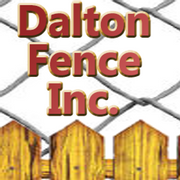
To protect children and pets, Georgia has regulations about fencing around pools. Not only does this reduce the likelihood of drowning, but it also protects you. By staying within the law, you reduce your liability. Here’s a closer look at the state’s requirements for pool fences so you can be sure to stay within regulations.
Fence Regulations
In Georgia, you must have your pool completely enclosed by a fence. If the pool backs up to your home, you may consider the home one side of the fence, but only if the door that leads to the pool is equipped with an alarm. The fence must be at least four feet high to prevent easy climbing, with no more than two inches between the bottom of the fence and the ground.
Preventing Entry
 Young children and small pets may be able to squeeze through the fence if the panels are spaced out too far. Vertical slats must be no more than four inches apart, and chain link should contain diamonds that don’t exceed 2.25 inches. The fencing within one and a half feet of the gate must have no openings that could allow a child to undo the latch from the outside.
Young children and small pets may be able to squeeze through the fence if the panels are spaced out too far. Vertical slats must be no more than four inches apart, and chain link should contain diamonds that don’t exceed 2.25 inches. The fencing within one and a half feet of the gate must have no openings that could allow a child to undo the latch from the outside.
Gate Requirements
The gate for your pool fencing must have a self-closing and -latching mechanism. On a four-foot fence, the aforementioned minimum height, the latch must be six inches or less from the top. Taller fences require that the latch is above the four-foot mark. Additionally, the gate must open away from the pool.
Your housing community may have further regulations for safety, so consult your fencing contractor before you install a new fence. If you want a visually appealing fence to keep your pool safe, work with the experts at Dalton Fence, Inc. Since 1979, they’ve helped homeowners and businesses install attractive fences in many materials, from chain link to wood to steel. Learn more about their services on their website and call (706) 278-6366 to discuss your project.
About the Business
Have a question? Ask the experts!
Send your question

